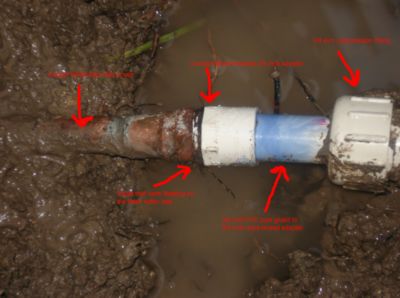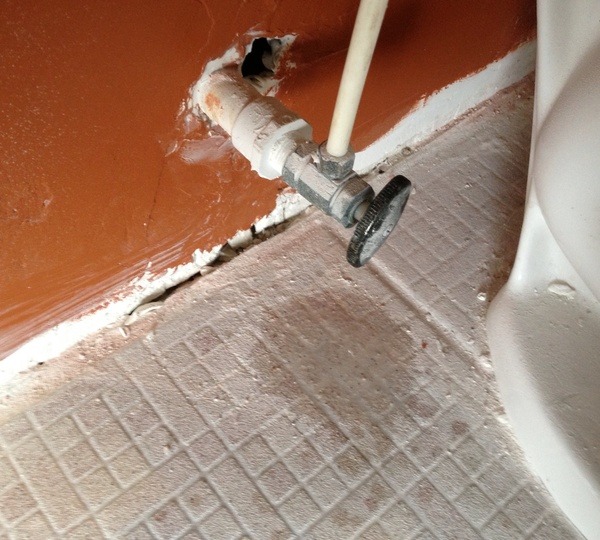What're your opinions about Reasons for Water Heater Leaks?

"Be cautious of little expenditures. A tiny leak will sink a great ship." - Benjamin Franklin.
He couldn't have been extra right because water leakages in our houses lead to a waste of resources, enhancing our water bills. This boost might appear minimal at initially, it can lead to considerable expenses that can damage your bank. Besides an increase in costs, water leaks also create unwanted natural growth, architectural damage, and also even electrical risks.
If you have a water leakage isn't always very easy due to being incapable to see most of the pipework in your residence, figuring out. If you have had an increase in your water bills recently, discovered water discolorations on ceilings and walls, smelt lousy odor, etc. You may want to consider asking for plumbing solutions to get it checked out.
There are a number of causes of water leakages, and we have put together the common reasons listed below. Check to see if you have had relevant problems in your home just recently.
Weakened pipeline joints
Pipeline joints are the parts of our plumbing system where the pipelines connect. They are the weakest point of our plumbing system. Because of this, they are much more vulnerable to damage. It is vital to note that although pipes are created to hold up against pressure as well as last for some time, they weren't designed to last permanently; consequently, they would wear away gradually. This damage might result in fractures in plumbing systems. A common sign of harmed pipe joints is too much noise from taps.
High water pressure
You observed your residence water pressure is higher than usual yet then, why should you care? It's out of your control.
It would be best if you cared since your average water stress must be 60 Psi (per square inch) and although your home's plumbing system is developed to withstand 80 Psi. A boost in water stress can place a pressure on your home pipes as well as cause cracks, or even worse, ruptured pipelines. Get in touch with a specialist regarding controling it if you ever before see that your house water stress is greater than normal.
Rust
As your pipework grows older, it gets weak and also more susceptible to rust after the constant passage of water through them, which can eat away at pipes and trigger splits. A noticeable indication of rust in your house plumbing system is staining as well as although this could be hard to identify as a result of many pipes hidden away. We advise doing a regular checkup every few years and also transform pipelines once they are old to guarantee a sound plumbing system
Clogged drains pipes
Food particles, dirt, as well as grease can create stopped up drains pipes and also block the flow of water in and out of your sink. Increased pressure within the rain gutters can create an overflow and also end up fracturing or breaking pipes if undealt with. To prevent stopped up drains pipes in your home, we advise you to prevent putting particles away and normal cleansing of sinks.
Busted seals
Another source of water leaks in homes is broken seals of home appliances that make use of water, e.g., a dish washer. When such appliances are installed, seals are set up around water ports for very easy flow of water with the maker. A broken seal can trigger leakage of water when in use.
With little or no knowledge of plumbing, understanding your home's plumbing system sufficient to repair several of these issues (without effect) can be a headache. Connect with plumbing experts in Pittsburgh, Providence, Rochester, as well as environ today, and also they'll make those concerns go away.
He could not have actually been more appropriate since water leaks in our homes result in a waste of resources, enhancing our water bills. If you have had a rise in your water bills lately, noticed water discolorations on walls and ceilings, scented lousy smell, etc. A boost in water pressure can place a pressure on your residence pipes as well as lead to cracks, or worse, ruptured pipes. Another reason of water leaks in houses is broken seals of home devices that use water, e.g., a dishwashing machine. When such devices are set up, seals are set up around water connectors for very easy flow of water with the device.
5 TIPS IN DETECTING A WATER LEAK IN YOUR HOUSE
Water leaks can be hard to find in your home, yet they can be so common. We rely on water every day in our home, which is why a leak can cause big problems. By detecting them early, you can save money and further damage, getting the problem fixed as soon as possible. Here are 5 tips to help you detect a water leak in your home, so you can contact a plumber straight away and get the issue sorted.
Check your water meter
Many people underestimate the value of the water meter in their home. It can be one of the best ways to tell if you have a leak early on, so you can get on top of it before issues start arising. Start by turning off all the water in your home: taps, washing machine, dishwasher, etc. Now take a look at the meter – if it’s still changing with everything turned off, it’s likely you have a fast-flowing leak that you need to get on top of straight away. If nothing changes, then leave your meter for an hour or two and come back to it. Did it change in this time? It’s likely you have a slower leak, which isn’t as urgent but still handy to get fixed so it doesn’t become a bigger problem.
Keep an eye on your bill
Another good way to detect a leak in your home is by keeping an eye on your water bill. It helps if you have a past bill from the same period of time. You can compare like for like and determine whether your water usage has increased significantly. If it has, there may be a leak in your system that you haven’t picked up before. A professional plumber can check through all of your pipes and determine where it is coming from.
Look for damage
If you have a leak inside your home, you will notice damage over time. Take a look at your showers and bathtubs and note whether any of the tiles surrounding the area seem to be discoloured or damaged in any way. There may be water stains, mould or peeling material that has resulted from a build up of moisture over time. Make sure you take a look under sinks at the back of cupboards that don’t get accessed regularly. This is where damage can go unnoticed and build up over periods of time.

As a keen reader on Reasons for Water Heater Leaks, I thought sharing that piece of content was a smart idea. Enjoyed reading our review? Please share it. Help another person check it out. Many thanks for your time invested reading it.
See Availability